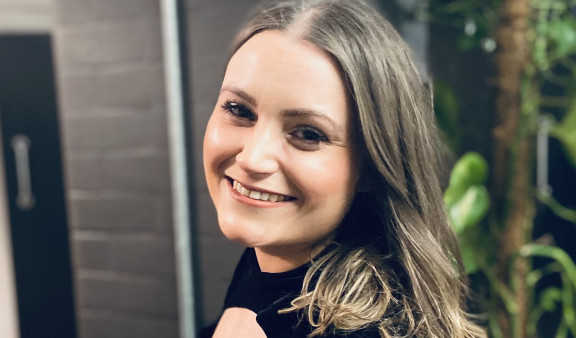
International Women’s Day: Industry insights from some of the women at Redbox
During the pandemic, technology remained a stalwart industry which continued to thrive while other sectors floundered.
A career in technology is one that is clearly worth pursuing but, as we learnt in part one, women are still underrepresented in the global tech workforce.
At Redbox, we believe that the gender imbalance is a missed opportunity for women, society and also businesses. Experience tells us that having a more diverse workforce that mirrors the wider society, including an equitable gender balance, makes for a better business.
In part two of our three-part series, we continue to mark International Women's Day 2021 by celebrating the achievements of the women who work at Redbox. We learn more about their roles, some of the challenges they have faced in their careers and their thoughts on what more could be done to encourage women into tech.
Sreerekha Mylath, senior Magento developer. Worked at the Dubai office for four years.
Tell us about your day-to-day at Redbox?
I’m a lead back-end developer for Nespresso in the Dubai office. When I first joined Redbox four years ago I worked on Sephora and ASQ, now I’m part of a dedicated team looking after the Nespresso account. Because of the very nature of the account, we’re not dealing with one client as such, we have 16 markets that we look after including, KSA, South Africa, UAE and Kuwait and Morocco.
It’s by far one of the biggest projects I’ve worked on. We’re handling everything from payment gateway changes and ERP integrations to mobile app support – working very closely with the internal team at Nespresso.
What's your biggest work achievement?
Without a doubt, it was the Nespresso migration to Magento 2.3 over 16 markets. It took just one and a half months, which is an amazing achievement from the Redbox team.
I was also proud to receive my Magento Professional Development Certification and more recently, Solution Specialist Certification from Adobe.
Tech is often viewed as a male-dominated industry. Did you overcome any obstacles to get to where you are today?
I’ve never had to overcome any obstacles at Redbox – it’s just not that sort of company. Prior to Redbox, it was a different story. I was doing the same line of work as my male counterparts and soon realised that I was being paid much less than they were. I brought this to the attention of my employer and thankfully, they did something about it. It’s a conversation I shouldn’t have had to have.
I see it a lot unfortunately, pay discrimination based on gender. I also think it depends largely on the country you’re coming from rather than your skillset. US or European counterparts generally get paid more than those coming from India or South East Asia, for example.
I’m the only female back-end developer at Redbox. Very few women take up developer positions.
When I was at university, there were a lot of women on my course who went on to do a career in development. However, in my experience, once they have children they don’t return. Often, we have to be available around the clock and do night shifts and for women with families, that’s just not possible.

Sreerekha Mylath, senior Magento developer
Is enough being done to encourage more women into tech and ecommerce?
I think the world is changing for the better but it differs from country to country. There are some countries that are making strides in encouraging women into tech but there are countries where cultural influences and norms prevail.
I was reading recently about The United Arab Emirates’ Mars Exploration Program. It is being led by UAE women scientists who make up 80 per cent of the program’s scientific team. This is such a significant milestone for women in the region.
Now stores have re-opened, have the number of shoppers dwindled and what has been the impact to ecommerce?
In this region, we have a shopping culture where people love to go to the malls, meet one another and socialise. When the shops first opened after lockdown, the malls were really busy and that’s not changed.
What we are seeing is more and more people shopping online. Ecommerce simplifies the busy life. There are new, online stores popping up all the time. Businesses are prioritising their digital strategies and those who are setting up new retail businesses are thinking ecommerce first.
Natalie Janssis, senior project manager. Worked at the London office for four years.
Tell us about your day-to-day at Redbox?
Day-to-day I am the key person who sits between the client and the internal teams to make sure all parties remain happy and that the project goes to plan and is completed on time and ideally on budget!
What's your biggest work achievement?
Launching the Fortnum & Mason site last year. It was a big achievement to get the launch live and trading for the Christmas peak.
Tech is often viewed as a male-dominated industry. Did you overcome any obstacles to get to where you are today?
There may be more hurdles for women that we are maybe not even aware that we are jumping over. Fortunately, I don’t feel I have had to overcome many to progress my career or go that extra mile as a woman to get where I want. Tech is generally a male-dominated industry, but at Redbox there is a good gender balance.

Natalie Janssis, senior project manager
Is enough being done to encourage women into tech and ecommerce?
I think there’s a lot of encouragement for women to take client-facing roles in tech, like account management, project management, etc. But I think it would be great to see more female developers. That said, I’m not sure that women are seeing coding, development or computer science as a clear or accessible career path for them, nor do I think enough is being done to encourage them into those fields.
This side of the industry needs to be more accessible to women, or more appealing. I don’t think companies have an issue employing women in coding or development roles, I just don’t think there are as many women as men in the market. Women add a different dynamic to a team and having that balance will bring a different dimension – and that’s a good thing.
What do you think ecommerce will look like this year once stores re-open in the UK?
I think people have realised they don’t need shops or do not need to shop the way they used to. When stores re-open fully, I think there will be a rush of people into town centres but after time, I think the novelty will wear off. We have been living without them on-and-off for so long that many people have got used to shopping online that didn’t previously.
We will see more shops transitioning to online. Bricks and mortar will need to diversify. If you look at some of the big brand names, they’ve added things like bars and places to eat - they are trying to drive people to their store as more of an experience. But, they have the space and money to do that. If the smaller brands are going to survive, they’re going to have to diversify or follow their larger counterparts and make their store more of destination.